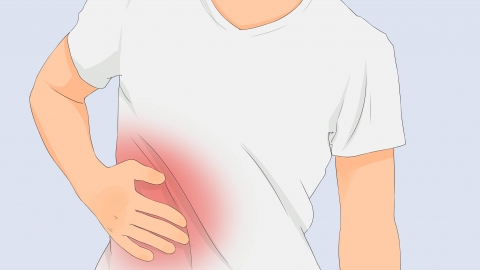What does it mean if transaminase levels are low?
Under normal circumstances, transaminase levels in the blood are relatively low and may be related to individual differences, dietary factors, malnutrition, hyperthyroidism, liver failure, and other factors. It is recommended to seek timely medical consultation to determine the exact cause and receive symptomatic treatment under the guidance of a qualified physician. Detailed analysis is as follows:

1. Individual Differences
Different individuals have varying baseline transaminase levels. Some people naturally have lower transaminase levels. It is recommended to maintain a healthy lifestyle, which helps preserve liver health.
2. Dietary Factors
Long-term vegetarianism or overly bland diets may lead to nutritional imbalances, which can result in low transaminase levels. A balanced diet that ensures adequate nutrition is recommended.
3. Malnutrition
Malnutrition is usually caused by insufficient intake, poor absorption, or excessive nutrient consumption. Long-term malnutrition, particularly deficiencies in protein and B vitamins, may damage liver structure and function, thereby affecting the synthesis and release of transaminase. Symptoms often include weight loss, fatigue, and anemia. Treatment may include medications such as vitamin B complex tablets, effervescent vitamin C tablets, and oral zinc sulfate solution, as directed by a physician.
4. Hyperthyroidism
Hyperthyroidism is typically caused by autoimmune thyroiditis, excessive iodine intake, and other factors. The increased metabolic rate associated with hyperthyroidism may lead to reduced transaminase levels. Common symptoms include palpitations, excessive sweating, and weight loss. Treatment may involve medications such as metoprolol tartrate tablets, propranolol hydrochloride tablets, and propylthiouracil tablets, as directed by a physician.
5. Liver Failure
Liver failure is commonly caused by long-term alcohol abuse, viral hepatitis, drug-induced liver injury, and other factors. In cases of severe liver damage, extensive hepatocyte necrosis may reduce the release of transaminases, potentially leading to low transaminase levels. Other symptoms may include jaundice, ascites, and hepatic encephalopathy. Treatment may involve medications such as hepatic-protective tablets, diammonium glycyrrhizinate injection, and polyene phosphatidylcholine injection, as directed by a physician.
It is recommended to maintain a balanced diet, including protein- and vitamin-rich foods such as lean meat, eggs, and fresh fruits and vegetables, to maintain nitrogen balance and improve liver function.











